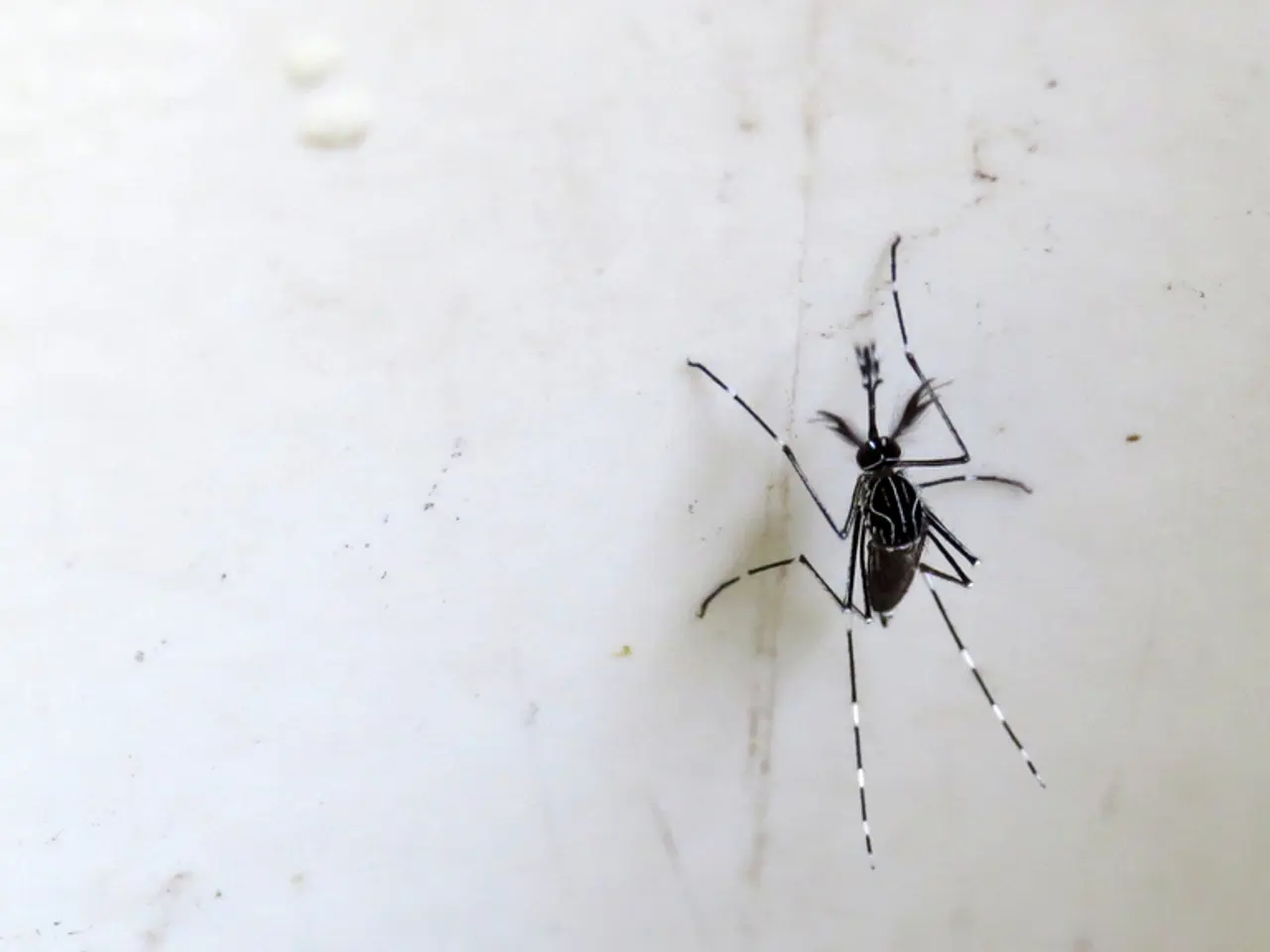Dengue fever: Identifying signs, remedies, and precautionary measures for effective disease control
Diagnosing dengue fever can be challenging due to symptoms similar to other diseases, but recent years have seen a growth in infection rates, particularly in urban areas. This tropical disease, which affects millions worldwide, is caused by four different viruses and occurs across North and South America, South-East Asia, the Pacific Islands, Australia, Africa, and the Eastern Mediterranean.
In 2019, a vaccine for children ages 9-16 was approved for those who have had dengue in the past and live in areas where dengue is common, including some United States territories. However, for most people, the best way to prevent dengue fever is to take steps to avoid mosquito bites.
Natural mosquito repellents can help reduce the risk of mosquito bites, which is essential for preventing the transmission of dengue fever. Here are some of the best natural options based on current evidence and expert recommendations.
**Effective Natural Mosquito Repellents**
One of the most effective natural repellents is lemon eucalyptus oil, which has been shown in studies to provide over 95% protection against mosquitoes for up to three hours when used at a concentration of 32%. Lemongrass oil, containing citral and geraniol, is another proven repellent and offers soothing effects for skin if bites occur. Lavender’s linalool content helps repel mosquitoes and soothe irritated skin. Citronella, widely used in candles, sprays, and lotions, is a classic and effective mosquito repellent.
**Herbs and Plants**
Basil, mint, rosemary, and lemongrass planted around your home or crushed leaves rubbed on the skin can help deter mosquitoes. Marigold, known for its insect-repelling properties, can be planted in gardens or placed near windows. American Beautyberry leaves can be soaked in rubbing alcohol to create a spray that repels mosquitoes. Citronella geranium, commonly sold in nurseries, can help keep mosquitoes away when placed near entryways.
**Practical Tips**
Many commercial natural repellents use blends of essential oils such as eucalyptus, lemongrass, and lavender for broader protection. DIY natural repellent sprays can be made by mixing essential oils with a carrier like witch hazel or alcohol and water. Physical barriers such as mosquito nets, wearing long sleeves, and eliminating standing water can also help reduce mosquito breeding sites.
In 2021, there were 513 cases of dengue fever in all U.S. territories, with 509 cases in Puerto Rico not related to travel. Around 40% of people with dengue fever will not experience symptoms, but severe symptoms may include abdominal pain, vomiting, bleeding, and fatigue, among others. Anyone with severe symptoms needs immediate medical attention.
While natural repellents are a safer alternative for health and the environment, they may require more frequent reapplication compared to chemical repellents. For optimal dengue prevention, use these methods alongside community-wide mosquito control efforts. People who are not eligible for the dengue vaccine can lower their risk by taking steps to avoid mosquito bites. These viruses are transmitted by the Aedes aegypti mosquito or, more rarely, the Aedes albopictus mosquito. Severe symptoms can indicate dengue shock syndrome (DSS) or dengue hemorrhagic fever (DHF), which are potentially fatal.
In conclusion, natural mosquito repellents offer an effective and environmentally-friendly solution for preventing dengue fever. By using these methods and staying informed about the disease, individuals can help protect themselves and their communities from the spread of dengue fever.
- The Aedes aegypti mosquito, responsible for transmitting dengue fever, is prevalent in areas prone to dengue outbreaks.
- For those who have had dengue in the past and live in affected regions, a vaccine was approved in 2019 for children aged 9-16.
- Lemon eucalyptus oil provides over 95% protection against mosquito bites for up to three hours at a concentration of 32%.
- Citronella geranium, often sold in nurseries, can help keep mosquitoes away when placed near entryways.
- Mosquito nets, wearing long sleeves, and eliminating standing water can reduce mosquito breeding sites.
- In 2021, 513 cases of dengue fever were reported across all U.S. territories, with 509 in Puerto Rico alone.
- Anyone experiencing severe symptoms such as abdominal pain, vomiting, bleeding, or fatigue should seek immediate medical attention.
- Severe symptoms may indicate dengue shock syndrome (DSS) or dengue hemorrhagic fever (DHF), potentially fatal conditions.
- Recent years have seen a growth in dengue infection rates, particularly in urban areas around the world.
- Marigold plants, known for their insect-repelling properties, can be placed near windows or in gardens to deter mosquitoes.
- For optimal dengue prevention, use natural repellents alongside community-wide mosquito control efforts, and stay informed about the disease to protect yourself and your community.




